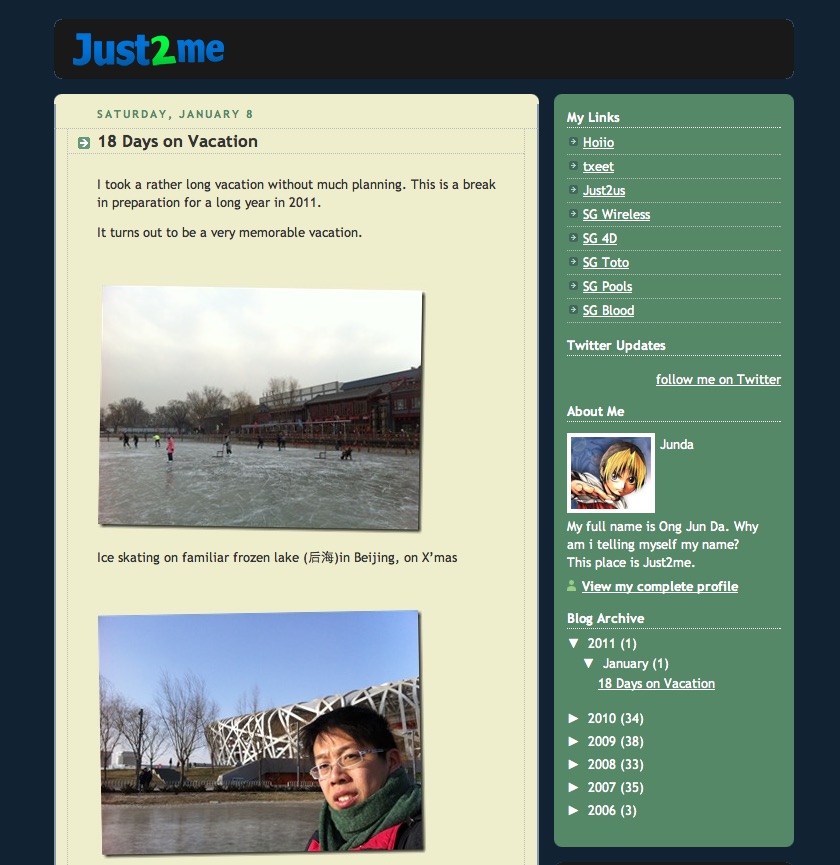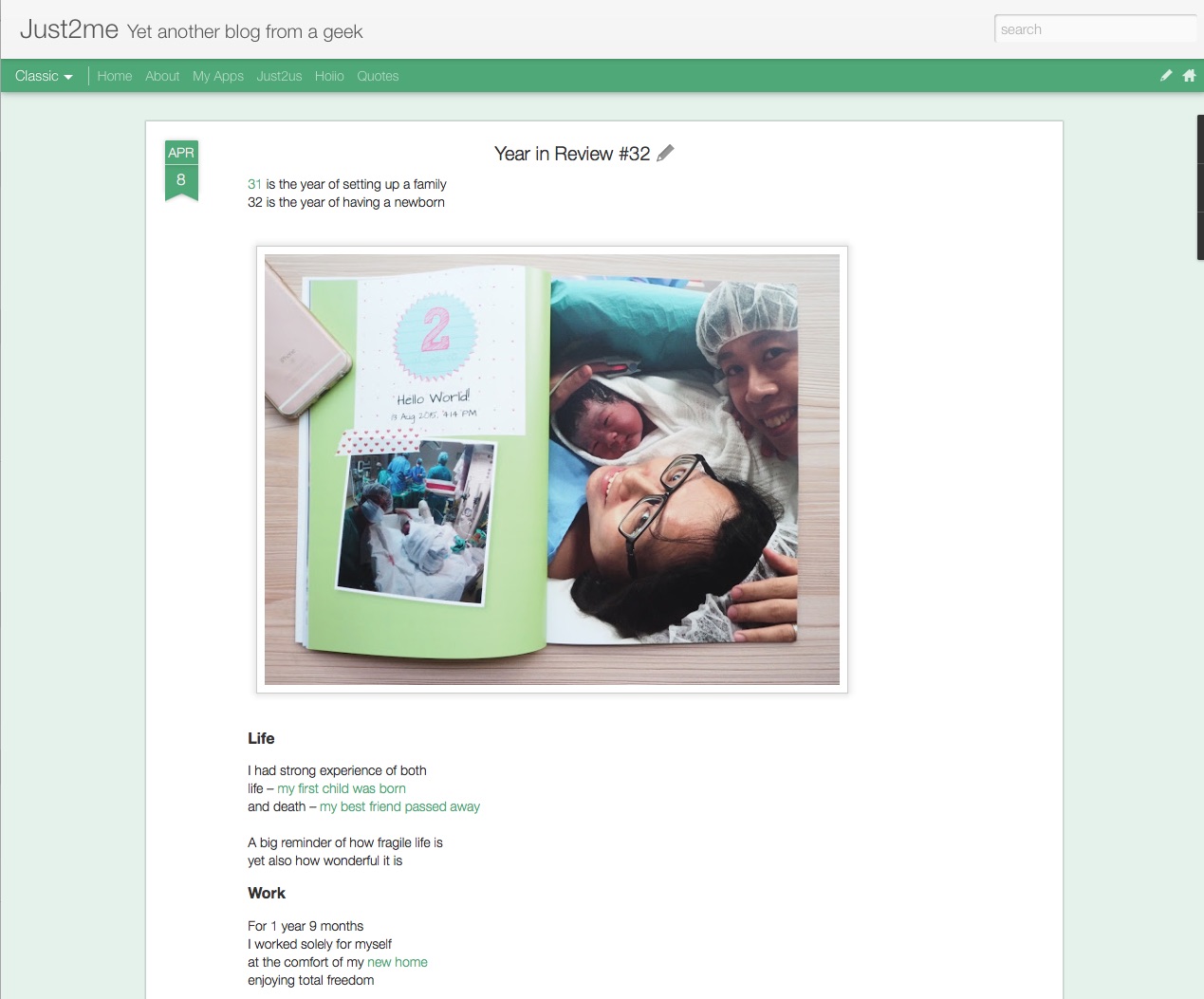In 2006, I wrote my first blog post on Blogger.com.
That was 10 years ago. And in that 10 years, I accumulated 306 posts.
I am grateful to Blogger.
Blogger was a good tool back then, and for quite a long time.
I was even very excited with their new dynamic template, 5 years ago.
Unfortunately, it stops there. Blogger never catches up with time.
What’s wrong with blogger?
My biggest reason to leaving is that my website design/template is no longer as nice.
The font is too small. It’s mobile/responsive version isn’t working well. And it’s transition UX from post to post is actually terrible.
I could change to another template. But there isn’t any better ones.
I contemplated switching to Medium.com, like many others do, but I hate giving up control.
The way of writing blog
On the other hand, I love writing in markdown, and believe that should be the only format we write content in.
Markdown is text, which can be translated to HTML, or any other markup.
In fact I have been writing so much in markdown for my technical sharing site (256 posts in 4 years), that I believe one of the reason is the ease that I get from doing so.
And so, finally, I switched from Blogger to Jekyll (with Octopress). The result is what you see today.
Now I can write with my favorite text editor, and host it for free on Github Pages.
Take a look back at this website..
 The original design in 2007
The original design in 2007
 The “dynamic” template in 2011
The “dynamic” template in 2011
 Now with Medium-like template
Now with Medium-like template
Migrating from Blogger to Jekyll
Note: Jekyll is a static website generator tool, and you should only use it if you understand web hosting, HTML, CSS, and some Ruby. Skip this if you don’t.
Jekyll provides migration tools for Blogger, Wordpress and others.
Export from Blogger to get all your posts in a XML file. eg. blog-05-12-2016.xml
Then run in your Jekyll folder:
ruby -rubygems -e 'require "jekyll-import";
JekyllImport::Importers::Blogger.run({ "source" => "./blog-05-12-2016.xml" })'
It will parse the XML and create posts in your Jekyll folder.